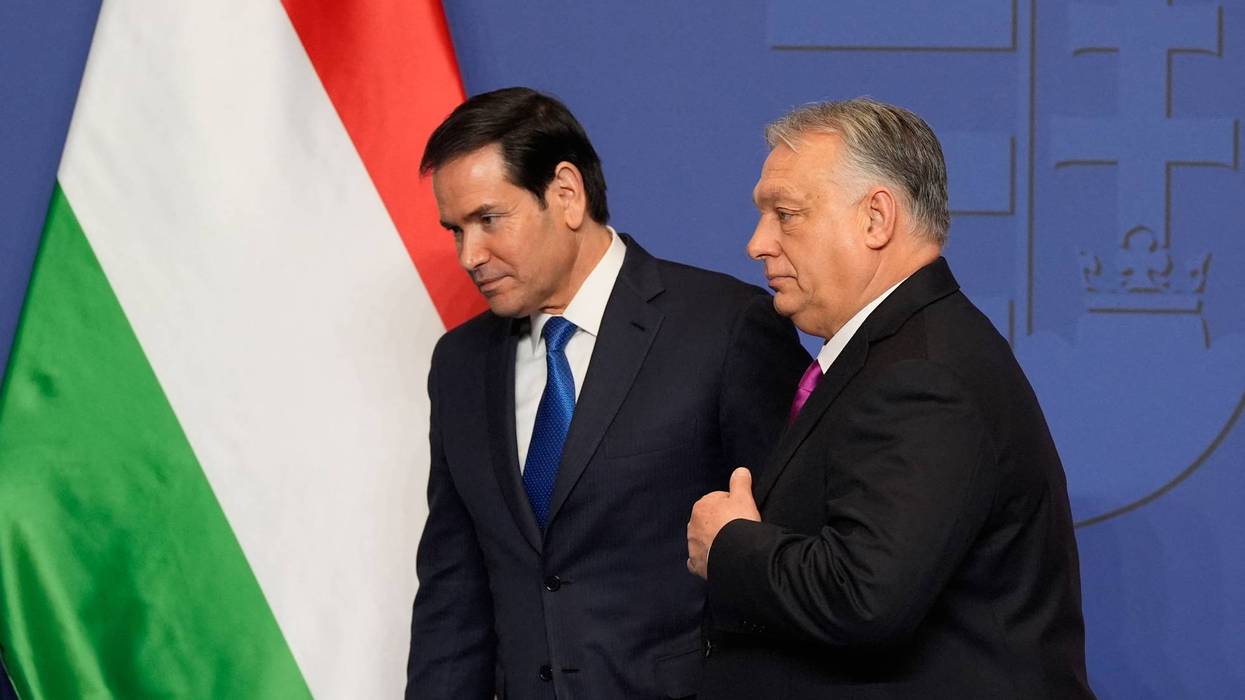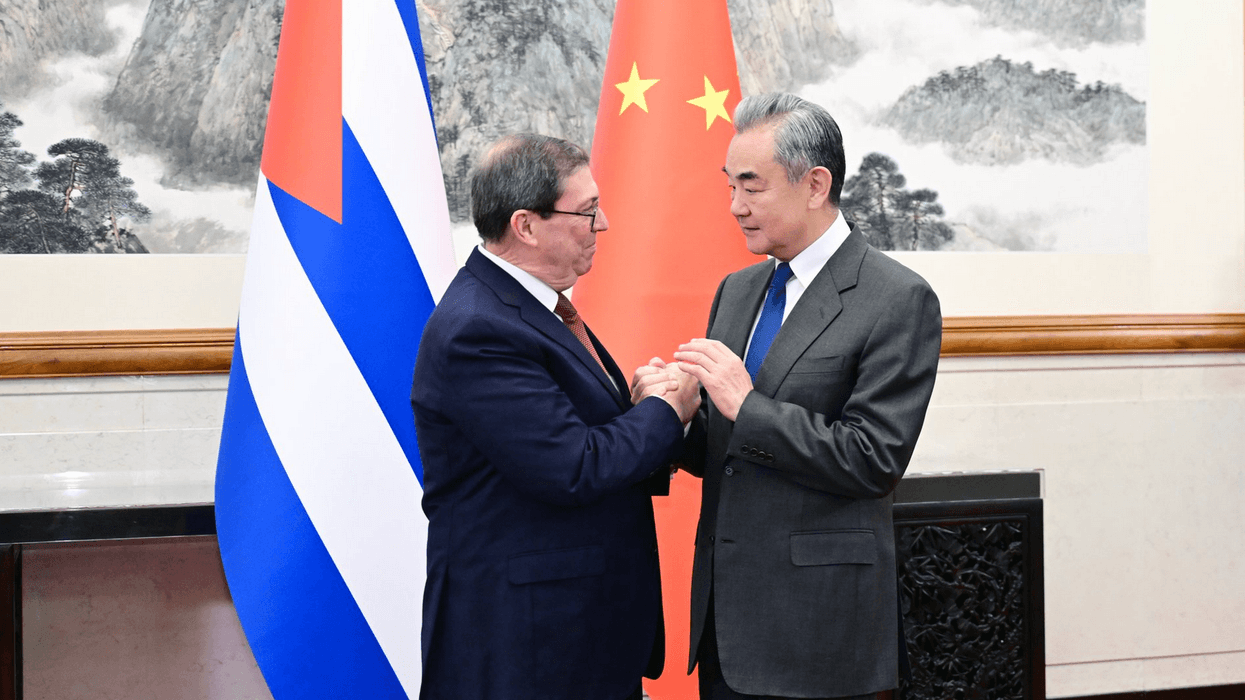'Wake Up Before It's Too Late,' Says AOC as Rubio Embraces Autocrat Orbán
"It’s time to take the gloves off and fight for our future," the democratic socialist congresswoman asserted.
As US Secretary of State Marco Rubio heaped praise upon Viktor Orbán as he seeks a sixth term as Hungary's increasingly autocratic prime minister, progressive Congresswoman Alexandria Ocasio-Cortez on Monday implored democracy defenders to "take the gloves off and fight for our future."
Visiting Budapest, the Hungarian capital, on the last leg of a three-country tour of Europe, Rubio pressed the Trump administration's thumb on the proverbial scale of Hungary's April election with a ringing endorsement of Orbán, telling him that President Donald Trump "is deeply committed to your success."
That's a glaring departure from a 2019 warning from lawmakers including then-Sen. Rubio (R-Fla.) to Trump that democracy had "significantly eroded" in Hungary as Orbán consolidated control over the electoral process, judiciary, and press. Now, Rubio says Orbán's success is "essential and vital" to US national interests.
"From Orbán to Trump, the rise of far-right movements is tightly coordinated and transcends borders," Ocasio-Cortez said on Facebook in response to Rubio's visit. "So too should be our international defense of democracy and the fight for working people. From policy to tactics, it’s time to take the gloves off and fight for our future."
Although Hungary openly flouted a US ban on importing oil, natural gas, or coal from Russia amid President Vladimir Putin's ongoing invasion and occupation of Ukraine, Trump recently granted Budapest a one-year exemption from sanctions.
And while Venezuelan President Nicolás Maduro's pursuit of an independent foreign policy—which included close relations with Russia and China—was cited as a reason for the US invasion of Venezuela and abduction of Maduro, Rubio said that Orbán's increasingly close ties with Moscow and Beijing are a matter of Hungarian sovereignty.
“We’re not asking any country in the world to isolate themselves from anybody,” Rubio said, although that's exactly what the Trump administration reportedly ordered Venezuela's interim government to do to China, Russia, Iran, and Cuba.
“There’s no reason to sugarcoat it. I’m going to be very blunt with you," Rubio told reporters Monday, adding that Trump and Orbán "have a very, very close personal relationship and working relationship, and I think it has been incredibly beneficial to the relationship between our two countries.”
Speaking Friday at the Munich Security Conference in Germany, Ocasio-Cortez accused Trump of trying to usher in an "age of authoritarianism."
“We have to have a working-class-centered politics if we are going to succeed,” she said, “and also if we are going to stave off the scourges of authoritarianism, which provides political siren calls to allure people into finding scapegoats to blame for rising economic inequality, both domestically and globally.”
Ocasio-Cortez—whose increasingly high profile has sparked speculation of a possible run for higher office—also slammed the "hypocrisies" of US foreign policy, “whether it is kidnapping a foreign head of state, whether it is threatening our allies to colonize Greenland, whether it is looking the other way in a genocide, hypocrisies are vulnerabilities, and they threaten democracies globally."
"This is a moment where we are seeing our presidential administration tear apart the transatlantic partnership,” she added. “What is happening is indeed very grave, and we are in a new era, domestically and globally."


